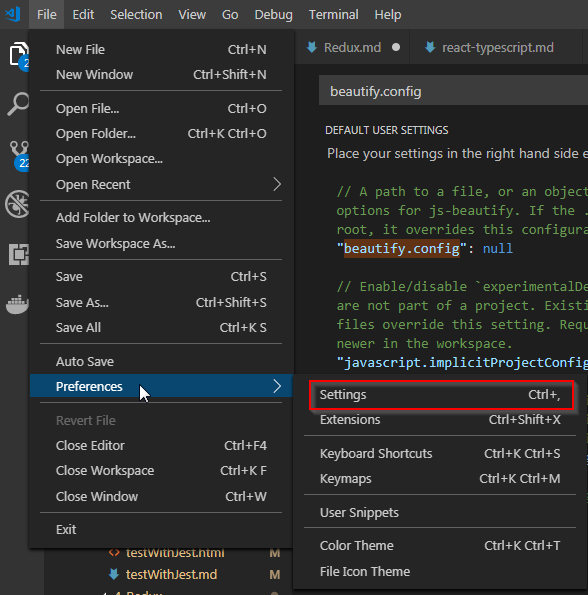Build React Native App (4) - Redux, Jest, and NativeBase

From this blog, typescript feature will be added. There are couple of ways to implement static type checking like; flow from facebook, PropTypes and Typescript. Typescript is well integrated with Visual Studio Code and supports better linter, error messages, and intellisense. Reference site Github Sample Ex4 Currnet version D:\GitRepo\reactnative>npm --version 6.3.0 D:\GitRepo\reactnative>react-native --version react-native-cli: 2.0.1 react-native: n/a - not inside a React Native project directory D:\GitRepo\reactnative>yarn --version 1.9.4 Creating React Native App $ react-native init ex4 If you want to specify the version, add "--version 0.57.3" at the end. Add NativeBase to React Native $ npm install native-base --save ... + native-base@2.8.1 added 71 packages from 42 contributors, removed 50 packages, updated 829 packages and audited 34989 packages in 138.542s found 0 vulnerabilities $ $ yarn yarn install v1.9.4 warning package-lock.json found. You...